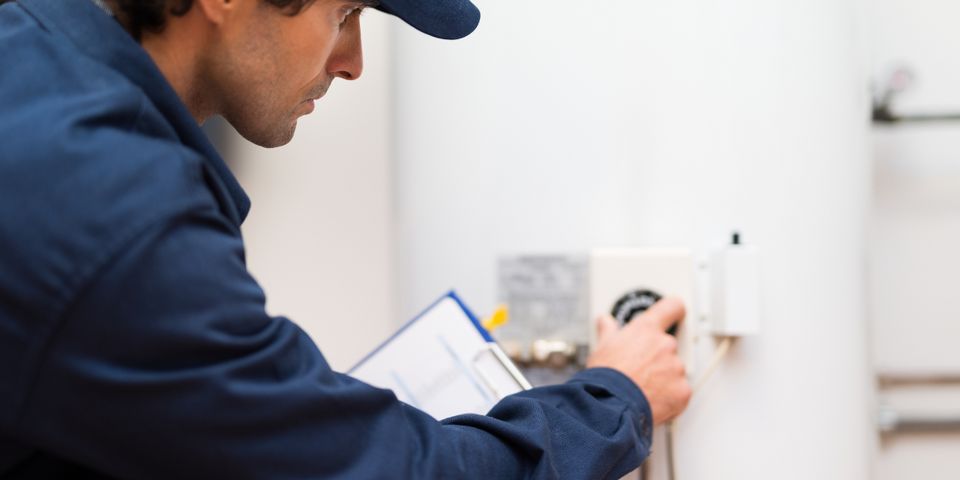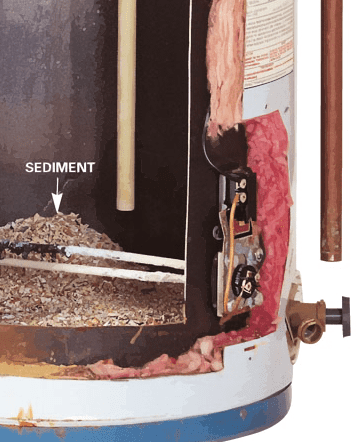Handling the Frequently Encountered Water Heater Emergencies
Handling the Frequently Encountered Water Heater Emergencies
Blog Article
Are you searching for advice on The Importance of Water Heater Maintenance?

A water heater is one of one of the most vital fundamental appliances that can be found in a residence. With water heaters, you don't need to experience the tension of heating water by hand whenever there is a need to wash, do the laundry, or the dishes. There is always an opportunity that your water heating system would act up as with most mechanical tools.
It is necessary to note any little breakdown and tackle it promptly before points get out of hand. The majority of times, your hot water heater starts to malfunction when there is an accumulation of sediments as a result of constant use. As a safety measure, periodic flushing of your water heater is advised to stop sediment buildup and avoid practical failure.
Typical water heater emergency situations and also just how to manage them
Dripping hot water heater storage tank.
A leaking storage tank could be an indication of corrosion. It could create damages to the floor, wall and electric gadgets around it. You could even go to threat of having your apartment or condo flooded. In this situation, you need to shut off your water heater, permit it to cool off, and thoroughly seek the resource of the problem. Sometimes, all you need to do is to tighten up a few screws or pipeline connections in cases of small leaks. However if this does not function and the leak persists, you may need to utilize the services of a specialist for an appropriate substitute.
Changing water temperature level.
Your hot water heater could start generating water of various temperature levels typically ice hot or chilly hot. In this circumstance, the first thing you do is to make certain that the temperature level is readied to the desired degree. If after doing this, the water temperature level keeps transforming during showers or other tasks, you might have a damaged thermostat. There could be a need to change either the thermostat or the home heating device of your water heater.
Insufficient hot water
Managing an insufficient supply of hot water can be irritating. It might be that the water heater can't support the hot water need for your home. To handle this issue, you might try to readjust your heating system's temperature level dial and also await a couple of mins. You can ask for the help of a professional plumber if the problem lingers. Conversely, you could upgrade your water heater to one with a bigger capability.
Stained or odiferous water
You require to understand if the problem is from the container or the water source when this takes place. If there is no funny odor when you run cold water, then you are specific that it is your hot water heater that is faulty. The odiferous water can be caused by rust or the accumulation of bacteria or sediments in the water heater storage tank. You can try flushing out your tank or replacing the anode if the problem persists once you discover this. The function of the anode is to clean out bacteria from your tank. Since the anode rod replacement calls for a comprehensive expertise of your water furnace, you will certainly need the help of an expert.
Final thought
Some homeowners overlook little warning as well as minor faults in their hot water heater unit. This just leads to additional damages as well as a feasible full break down of your device. You need to take care of your water heater mistakes as quickly as they come up to stay clear of more costs as well as unneeded emergency difficulties.
With water heating systems, you do not require to go via the stress of home heating water by hand every time there is a demand to take a bathroom, do the laundry, or the dishes. Your water heater can begin producing water of various temperature levels generally ice scalding or cold hot. It might be that the water heater can't sustain the warm water demand for your house. If there is no funny scent when you run cool water, then you are certain that it is your water heating system that is damaged. The odiferous water can be triggered by rust or the buildup of germs or sediments in the water heating system storage tank.
Water Heater Burst: Why This Happens And What To Do Next
Water Heater Explosion Warning Signs
Since storage water heaters are made of metal and store large volumes of heated water, they carry an increased risk of leaking or even exploding as they begin to rust at the fittings and seams over time. If the thermostat controlling the water temperature within the tank is faulty, or if mineral buildup inside the water heater prevents the thermostat from sensing the water’s temperature correctly, the water could become overheated. This will expand its volume within the tank, causing it to press at the tank’s fittings and seams. If these fittings and seams are rusted or corroded, the pressure could result in a leak or even an explosion.
Here are some risk factors and warning signs of an increased risk of water heater leak or explosion:
Your water heater is more than 10 years old. Your water heater makes clanking, banging or rumbling noises as it heats up, indicating that sediment has built up and hardened inside the tank. There is visible rust on the outside of the water heater, especially located at the pipe fittings or the seams that run down the tank. There is rusty water coming from your water heater, indicating that there may be rust building up inside. Your water heater is leaking, which could indicate either a crack somewhere in the tank or a malfunctioning temperature-and-pressure (T&P) relief valve. What To Do When Water Heater Leaks
If you find water dripping or seeping out of your water heater, or pooling around it, it means your water heater is leaking. If you find a leak, it may be best to call a plumbing professional to diagnose the problem and determine how best to handle it. If you choose to tackle it on your own, there are a few things you can do.
TURN OFF THE POWER
Next, shut off the power to the hot water tank at your home’s electrical breaker box. If you don’t shut off the power, the heating elements within the tank could continue to stay hot, which could pose a fire risk.
If you have a gas-powered water heater, you’ll also need to shut off the gas line leading into the tank.
FIND THE LEAK
Now it’s time to determine where the leak is coming from. Likely locations are the T&P valve, the drain valve or one of the pipes or fittings that feed into the top of the tank. If you see any rust or corrosion on the outside of your water heater’s tank, pipes or fittings, these could also be the source of the leak.
REPAIR THE LEAK
Once you determine the source of your water heater leak, you’ll have a better idea of what steps you need to take to fix the problem. It may be a simple fix—such as using a wrench to tighten fittings or replacing the T&P valve—but it may be something more complicated. You may even need to drain the tank, remove the water heater and install a new one.
https://www.abchomeandcommercial.com/blog/water-heater-burst/

I'm just very involved in Common Hot Water Heater Problems and I hope you appreciated the entire post. If you enjoyed our page kindly do not forget to share it. Thanks for your time invested reading it.
Browse Our Site Report this page